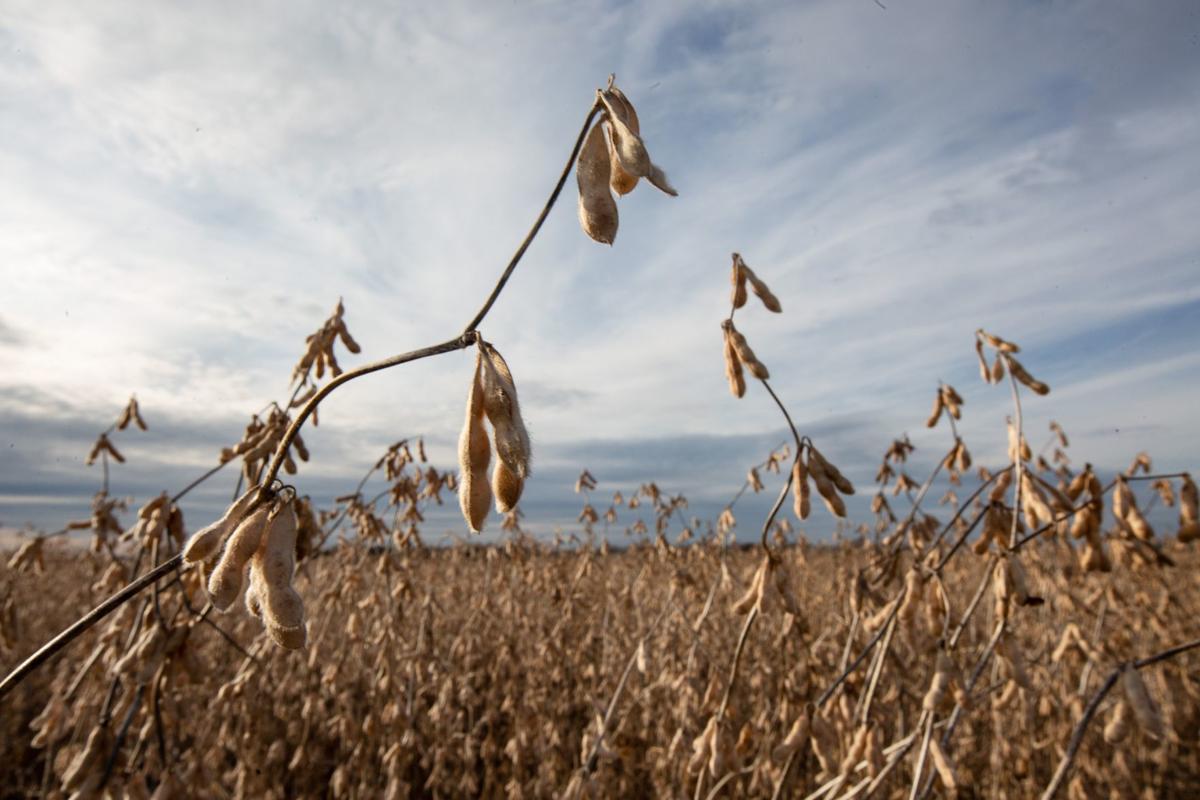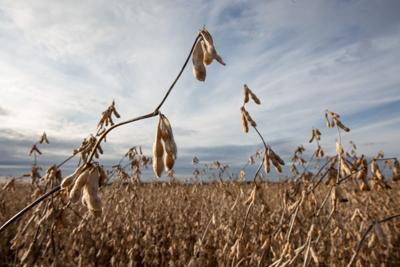ST. LOUIS ŌĆö Farmers, lawyers and scientists said on Tuesday that the future of the weedkiller dicamba now faces fresh uncertainty after an Environmental Protection Agency report revealed that senior Trump-era staffers improperly influenced the decision to re-approve the controversial herbicide in 2018.
The report, released Monday, does more than sow distrust, several said. It undermines the credibility of federal regulators, discourages the participation of outside scientists, encourages lawyers to mount new arguments, and could push farmers to reconsider their crop decisions.
ŌĆ£The report begs to have further investigation done into it,ŌĆØ said Paul Lesko, a ╣¹Į┤╩ėŲĄ-based attorney working on a wave of dicamba cases. New clients are continually telling him of damage done to their fields by dicamba, he said.
German conglomerate Bayer, a major manufacturer of the chemical, said that it stands by its widely adopted XtendiMax line of dicamba products.
People are also reading…
ŌĆ£We have continued to test and build on the robust scientific data behind this important technology,ŌĆØ the company said on Monday. ŌĆ£And the latest EPA decision in 2020 was based on a significant amount of new data and learnings from recent seasons.ŌĆØ
Dicamba, a decades-old chemical, rose to newfound popularity in recent years. Weeds were developing resistance to former herbicide staples, like Roundup, pioneered by Creve Coeur-based Monsanto. Monsanto, looking for alternatives, engineered crop varieties that could withstand dicamba sprayed over them. Bayer purchased Monsanto in 2018.
But farmers soon began to complain that dicamba vaporized and drifted to other fields, harming other plants and crops. Millions of acres of crop damage have now been reported across U.S. farms ŌĆö including a $265 million jury ruling last year against Bayer and competitor BASF in favor of a Missouri peach farmer ŌĆö all fueling heated controversy and tearing an often bitter rift in the agricultural community.
On Monday, the EPAŌĆÖs Office of Inspector General released a report describing a range of procedural inconsistencies that led up to the hot-button decision to uphold the productŌĆÖs availability in 2018. ŌĆ£This led to senior-level changes to or omissions from scientific documents,ŌĆØ the report said. ŌĆ£For instance, these documents excluded some conclusions initially assessed by staff scientists to address stakeholder risks. We also found that staff felt constrained or muted in sharing their concerns on the dicamba registrations.ŌĆØ
ŌĆśSome level of cynicismŌĆÖ
The report, said scientists, farmers and lawyers, is likely to have ripple effects.
Academic weed scientists said it undermines the credibility of the regulatory process that governs herbicides like dicamba, and discourages participation from experts. Some of those sentiments had already been growing in recent years, even before MondayŌĆÖs findings came to light.
ŌĆ£There were a lot of people in the academic community that were disappointed with the decision-making in 2018,ŌĆØ said Andrew Thostenson, a pesticide specialist for North Dakota State UniversityŌĆÖs extension service. ŌĆ£That raised some level of cynicism with EPA. ItŌĆÖs like, ŌĆśWhy should I bother providing you with this stuff if youŌĆÖre not going to follow through?ŌĆÖŌĆØ
And the EPA was under a lot of pressure to re-approve dicamba in 2020, Thostenson added, noting that the decision was issued in the week before the presidential election.
Now heŌĆÖs bracing for legal challenges to mount.
ŌĆ£If youŌĆÖre in the ag industry or if you find these products useful, itŌĆÖs not a good thing,ŌĆØ said Thostenson.
Farmers and seed dealers ŌĆö who said they could not speak openly, given their business ties to dicamba products ŌĆö agreed that the new details about the 2018 decision cast more murkiness on the future availability of the chemical. Although farmers are already committed to their planting decisions for 2021, in future growing seasons they may be more tempted to explore alternatives that face less risk of getting pulled from the market in a drawn-out tug-of-war.
Lesko, the ╣¹Į┤╩ėŲĄ attorney, said the findings reinforce the belief that dicamba ŌĆ£is not a safe product to be on the market.ŌĆØ
But he also said that the types of dicamba clients are changing.
Fewer soybean farmers are coming forward, he said, since so many have adopted the technology ŌĆö often to protect themselves from further harm. Damage complaints have shifted to vineyards, plus various fruits, vegetables, and trees that are not resistant to the chemical.
ŌĆ£ItŌĆÖs just changing the spectrum,ŌĆØ Lesko said.


















